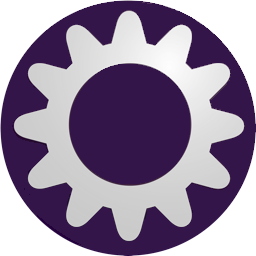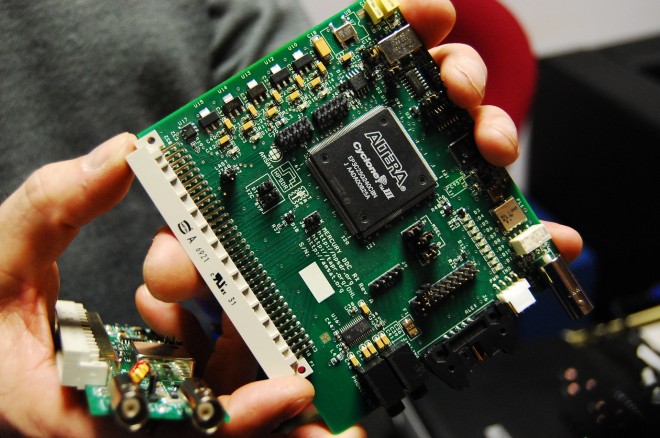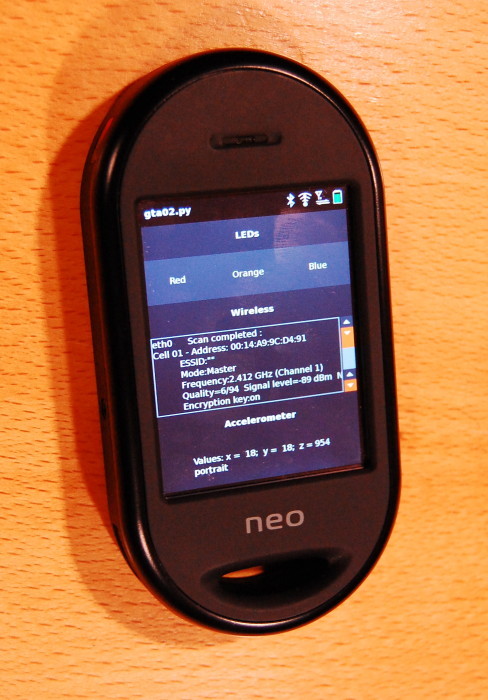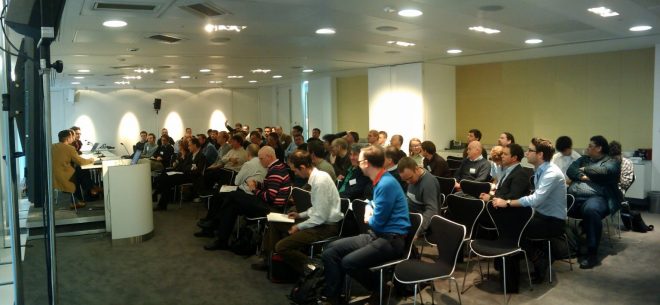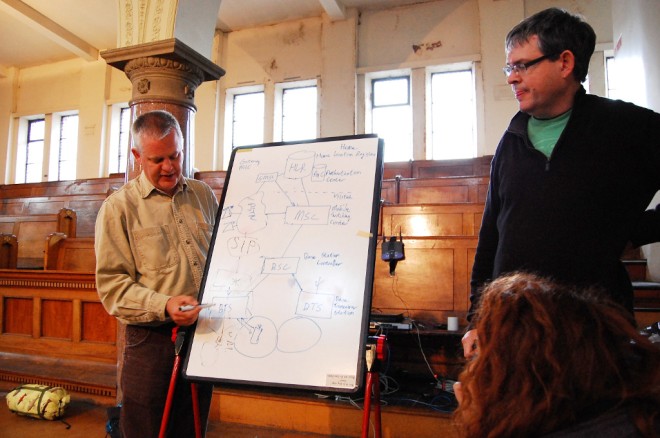Andrew Back writes about a special momeny for the Open Source Hardware User Group (OSHUG):
Ten Years of Open Source Hardware
This week marks the tenth anniversary of the inaugural meeting of the Open Source Hardware User Group (OSHUG). As such it seemed only appropriate to take a look back over the past decade at not only the history of OSHUG, but some of the history and the future of open hardware also.
Setting the scene
The Electron Club hackerpsace, Glasgow, 2008.
Let’s begin a little earlier and around 12-13 years ago. My own introduction to open source hardware — note that I will also use open hardware interchangeably and to mean the same thing — came in 2007/2008 via two different routes. The first of these being a fellow co-founder of Glasgow hackerspace, the Electron Club, who was excited at the artistic possibilities presented by the new Arduino platform. The second was a BT Osmosoft colleague who spotted the recently announced Bug Labs hardware and said, “Hey Andrew, this looks like it might be your sort of thing!”
Bug Labs are still around today and it appears their focus shifted from hardware to services. Of course, the Arduino story is well known and for many years it served as the open hardware poster child. What followed next, at least in the most visible sense, was a burgeoning ecosystem of relatively simple board designs — such as breakout modules for surface mount devices, along with Arduino compatibles and add-ons. There was a growing movement and this was focused mostly around microcontrollers and the enthusiast market. Simpler designs, but nevertheless important.
At this point it would be remiss not to mention two notable exceptions. The first of these being Openmoko, which set out to create a family of mobile phones with an open hardware specification — schematics and mechanical CAD files were provided — and open source O/S. Also another consumer electronics product, the Chumby, an embedded computer with a touch screen and WiFi.
In addition to which, Elphel had been quietly producing open hardware and free software powered video cameras for some time. Notably also there was OpenSPARC from Sun and the grassroots open silicon community, OpenCores, together with its flagship project, OpenRISC. These and other early open silicon efforts are covered in more detail in Gareth’s article, Digital FOSSils.
OSHUG #1
The nascent open hardware movement had started to gather momentum and in December 2009, Nesta, the UK based charity and innovation foundation, hosted a one day event dedicated to the topic. This served as a pivotal moment for many of those of us who attended and one outcome of this being the formation of the Open Source Hardware User Group.
OSHUG was co-founded in early 2010 by Paul Downey, Alan Wood and myself. Inspired by the Nesta event and also encouraged by UK semiconductor company, XMOS, which had decided to publish its development board designs as open hardware.
Fortunately, Paul and I both worked for BT’s open source innovation unit, Osmosoft, where community events were part of its remit. So on Thursday 29th April 2010 we hosted the first ever OSHUG meeting. For this we were honoured to have Professor David May — architect of the Transputer and then CTO of XMOS — present.
We decided from the outset that, although the focus would primarily be hardware with liberal licensed design artefacts, we would also encourage talks on related topics, such as embedded development, along with tools and techniques employed in hardware design and manufacture. A policy which has served OSHUG well and led to an ever interesting mix of topics.
A community grows
The first few meetings really enabled the group to establish itself and this wouldn’t have been possible without the support of BT Osmosoft. Themes explored included licensing and community, along with topics such as software-defined radio and FPGA development. For the sixth meeting we were hosted by London Hackspace and for the seventh the BBC, which featured talks on the BBC Computer Literacy project — which gave birth to the BBC Micro — and Domesday project.
The eighth meeting was the last that was held at the Osmosoft offices (the security arrangements at the Westminster telephone exchange we occupied were… tricky).
For the ninth meeting we were kindly hosted by Skills Matter. This featured an introduction to FPGA programming from Omer Kilic, a talk on OpenCores and OpenRISC from Dr Jeremy Bennett, and Lawrence Wilkinson gave a talk on emulating an IBM System/360 mainframe in FPGA.
….
